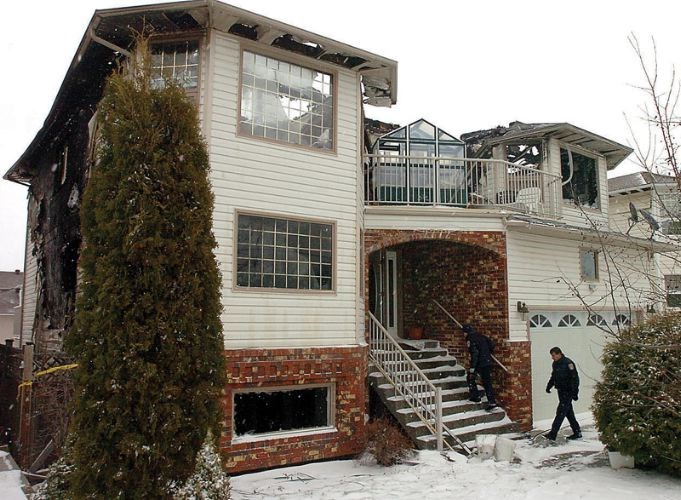A Prince George man convicted of setting a fire that led to the death of a noted member of the city's Sikh community was sentenced Tuesday to a further six years and three months in prison.
Frank William Edward Marion, 51, was issued the term by B.C. Supreme Court Justice Ron Tindale for the Jan. 7, 2012 fire at 2772 Merritt Road and the subsequent death of his landlord, Jagdev Singh Jawanda, 85.
Tindale called Marion's actions a "horrible and senseless crime" for which he holds high moral blameworthiness because he knew Jawanda would likely be home at the time the fire was set.
Marion was renting the second floor of the three-storey home where Jawanda lived on the top floor and two other tenants, who were not home when the blaze was ignited, lived on the bottom floor.
Firefighters found a jerry can holding gas in Marion's bedroom and a tank of propane in the suite's oven. Had the propane detonated, the house would have "gone off like a bomb," the court had heard during the trial, and Tindale said it's clear Marion had "intended to cause considerable damage."
A retired math teacher, Jawanda was described as a deeply religious man who dedicated his life to education and helping others, two of his sons and a daughter said in victim impact statements supplied to the court.
Born in India into a working class farming family, Jawanda struggled to gain an education but finished at the top of his class in graduate studies and became headmaster at a prominent school in the country.
He decided to move to Canada because he believed this was a country where he could truly forge his own path through hard work and education. Jawanda kept busy managing his seven rental properties and was planning to run for president of one of the city's Sikh temples and to return to India for a visit. His death meant he was never able to see his five-week-old grandson.
"It is clear Mr. Jawanda's death has had a profound effect on his children, his grandchildren and the community in general," Tindale said.
In all, Marion was sentenced to 10 years in prison, reduced by 45 months for time served in custody. He was given one-a-half times credit for the 30 months spent behind bars prior to sentencing.
In March 2013, Tindale found there was enough evidence to convict Marion of three charges, the most significant being manslaughter. But proceedings were slowed by a need to determine whether Marion was not criminally responsible by mental disorder and his decision to change lawyers.
Marion has an extensive criminal record and a history of substance abuse and there was evidence he was smoking crack cocaine at the time of the incident.
A psychiatrist concluded Marion did not meet the criteria for certification under the Mental Health Act. Although Marion experienced psychotic symptoms in the past, the psychiatrist found they largely were a function of his substance abuse.
Marion admitted to another professional that he had set fires before and during the trial, the court heard that a month before the incident he was talking about setting the house on fire, apparently while high on drugs.
About 10 minutes before firefighters were first called to Jawanda's home shortly after 3 a.m., police found Marion a kilometre away from the house, banging on doors, which Crown prosecution alleged was an attempt to establish an alibi. The officers found Marion with a duffel bag that strongly smelled of gas and later testing found gas on his jeans, the court was told.
Given a chance to address the court, Marion said he "can't fully take the blame for what's happened because to this day, I'm not sure what really went on," and added he plans to appeal the verdict.
Following the decision Sid Jawanda, one of Jawanda's sons, called his father's death a loss to the family and the community. "There is no being happy with the sentence, it is what it is," he added. "Unfortunately, he can't undo what he's done and he'll be punished for it. It doesn't change what's happened."



